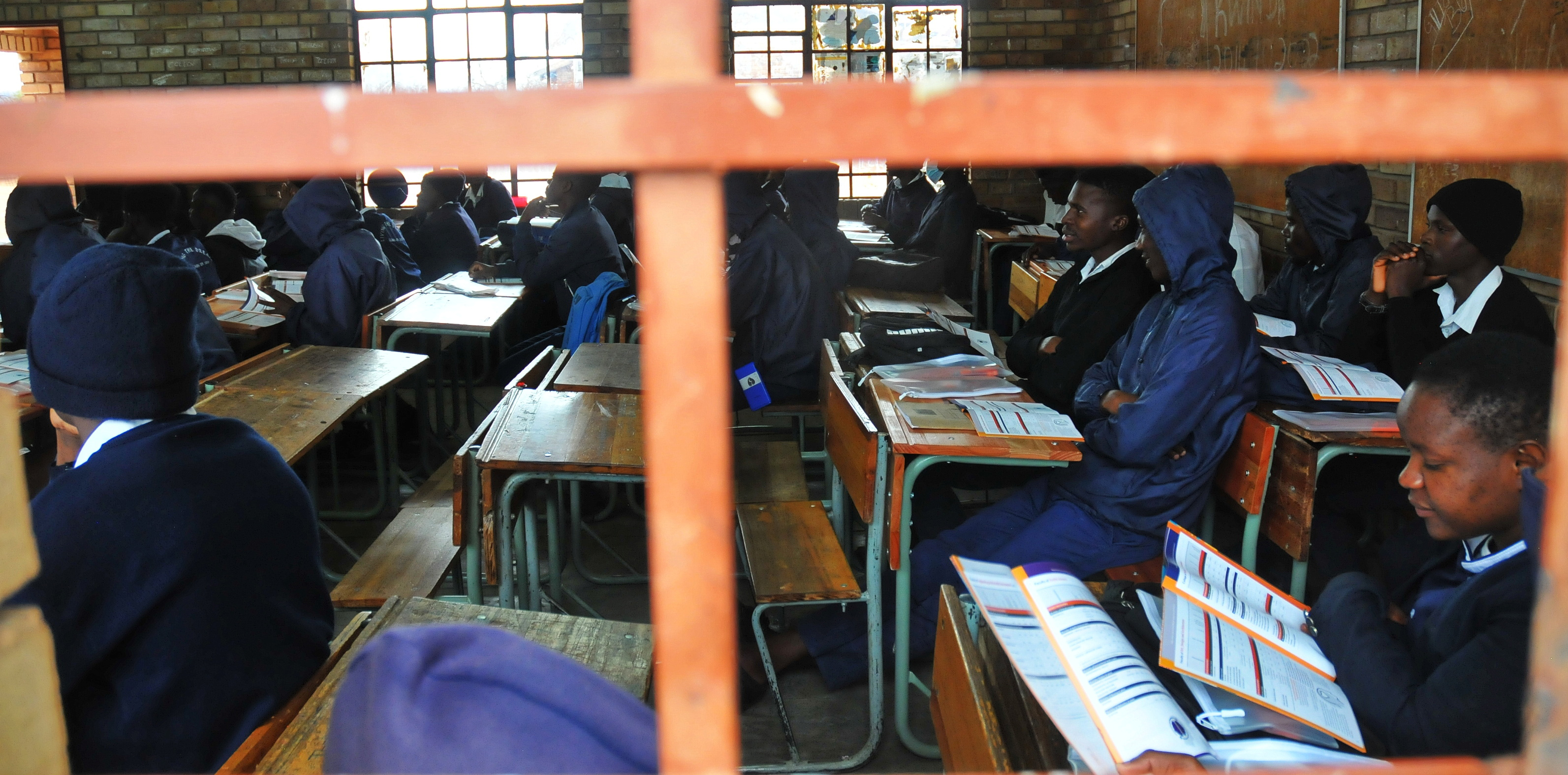CLASS OF 2023
Limpopo’s matric strategy pays off as it lifts itself out of bottom spot in national rankings

Concerted behind-the-scenes interventions helped to turn around Limpopo’s NSC worst-performer status – this in a vastly rural province plagued by high levels of poverty and underdevelopment.
“At last we have moved from the last spot,” Limpopo education MEC Mavhungu Lerule-Ramakhanya exclaimed with a sigh of relief after the announcement of the 2023 National Senior Certificate (NSC) results in Polokwane on Friday, 19 January 2024.
Limpopo, which came seventh overall with a 79.5% pass rate in the 2023 NSC results, was announced as the best improved province with a 7.4% improvement from 2022.
The leap has gone some way to improve the province’s dodgy reputation as perennial tailender in the NSC results.
In 2018 Limpopo produced a 69.4% matric pass rate, then improved to 73.2% in 2019 but regressed to 68.2% in 2020. The decline worsened when the province scored 66.7% in 2021.
The province has now moved two places above Mpumalanga (76.9%) and Northern Cape (75.8%)
Premier Chupu Mathabatha said the provincial government convened an education indaba in early 2023 where a strategy was hatched to improve the province’s matric pass rate.
In her 2023/24 budget vote speech, Lerule-Ramakhanya revealed that as part of the province’s intervention measures, the head of Limpopo’s education department, Onica Dederen, conducted accountability sessions with principals of underperforming schools and also held academic reflection sessions with all principals of both performing and underperforming secondary schools.
The aim, Lerule-Ramakhanya said, was “to reflect in much detail on the 2022 results and what should be done as a matter of urgency”.
Extra lessons

From left: The Zionist Christian Church’s Bishop Barnabas Lekganyane and Limpopo Premier Chupu Mathabatha applaud the province’s 79,5% matric pass rate. (Photo: Lucas Ledwaba/Mukurukuru Media)
On Friday, as teachers, parents, learners and officials ululated and danced in celebration of the improved results, Dederen outlined some of the initiatives put in place last year.
These included holding study camps in schools; better classroom management; rigorous school visits by officials; and providing extra lessons through morning and afternoon classes.
Dederen said these interventions played a critical role in improving results, and, in particular, classroom management helped to support teachers and learners.
The education department also conducted a detailed analysis of the 2022 results and strengthened accountability at all levels.
Dederen said this also meant that principals were required to hold teachers accountable for the subjects they teach.
The province also put in place an electronic system to track learner performance in all districts and set targets for schools and circuits. Critically, traditional leaders were also roped in to participate in education committees, which included parents, learners and school governing bodies.
Unique challenges

Many schools in Limpopo – such as Hanyani Secondary – are located in poverty-stricken areas with limited resources. (Photo: Lucas Ledwaba/ Mukurukuru Media)
At least 85% of Limpopo’s rural communities fall under the administration of traditional authorities.
A 2019 South African Journal of Education paper titled Teachers for rural schools – a challenge for South Africa noted that teachers and learners in “rural schools face severe challenges that are unique to their environment”.
The challenges outlined include high levels of poverty; a lack of resources; irregular school attendance by learners who are sometimes forced to work on farms; a lack of experienced, qualified teachers; and lack of parental interest in children’s education.
However, the interventions implemented by Limpopo seem to have brought about some improvement with Lerule-Ramakhanya acknowledging that “rural [based] schools have done well this year”.
The Mopani West District, which according to Department of Cooperative Governance and Traditional Affairs statistics, comprises 16 urban areas (towns and townships) and 354 villages, where 628,941 people of the 1.1 million population live in poverty, was the highest-performing district achieving an 83.8% pass rate with a total of 42.9% bachelor’s passes.
The performance of Motloboni Combined School in Senopelwa in the Modjadji traditional area falling under the Mopani West education circuit perhaps disproves the stereotype that being located in a poor rural area equates to poor results.
The Quintile 2 no-fee school, which offers general subjects, scored a 100% pass in the 2023 NSC results.
In 2022 the school achieved 98.1% and 100% in 2021. Deputy principal Ronald Rampedi attributes the school’s results to hard work and support from all involved – teachers, learners, parents and the general community.
The school conducts early morning, late afternoon and weekend classes plus holiday study camps, where parents play a role in ensuring the learners are safe and comfortable.
The province’s 7.4% improvement has brought about renewed hope and some relief, especially among government officials who have been under pressure to turn the tide.
“We have grown tired of being the worst-performing province,” Capricorn District Municipality mayor John Mpe said, acknowledging the move from tail-enders to seventh.
But a lot more work needs to be done if the province is to improve further.
Dederen acknowledged this when she remarked “what is left [now] is to sustain the gains”. Mukurukuru Media/DM





















 Become an Insider
Become an Insider
Comments - Please login in order to comment.